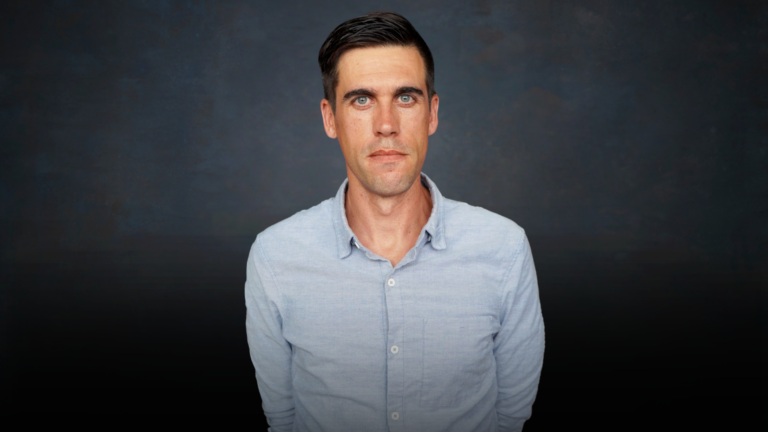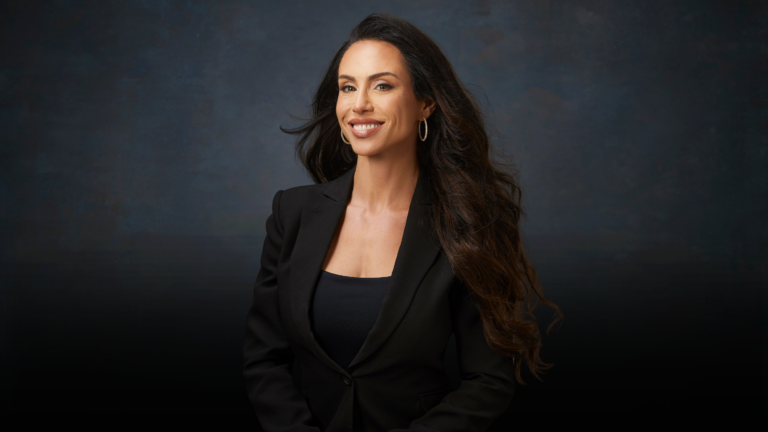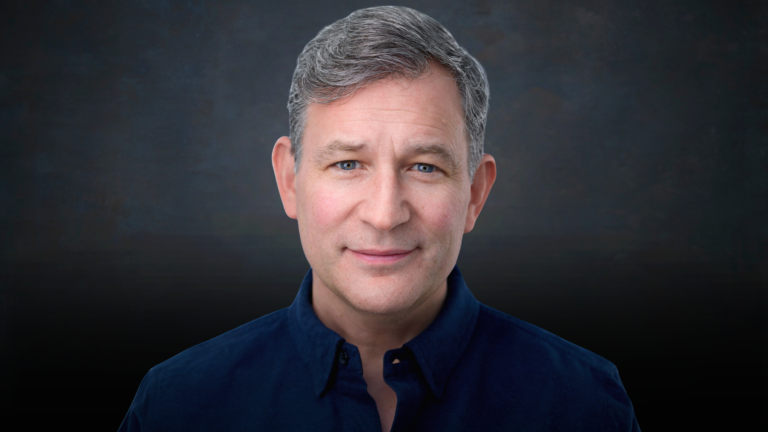This week’s conversation is with Dr. Trudy Goodman, the founding teacher of InsightLA and cofounder of the Institute for Meditation and Psychotherapy.
Trudy has trained in mindfulness and Zen since 1973, holds a graduate degree in developmental psychology from Harvard, and is one of the senior Buddhist teachers in the U.S.
She has taught at universities and retreat centers worldwide for 25 years.
Trudy is widely known for her role as Trudy the Love Barbarian in the Netflix series “Midnight Gospel”.
She is a contributing author to the Clinical Handbook of Mindfulness, Compassion and Wisdom in Psychotherapy, and Mindfulness and Psychotherapy.
And she’s also married to Jack Kornfield, who we were fortunate to have on the podcast just a few weeks back!
Trudy is a truly, a special human being.
In this conversation we discuss so much… the importance of trusting yourself and why that ultimately starts with loving yourself, which can be a big hurdle for some of us.
We also touch on Trudy’s spiritual framework, which focuses on the relationship between the mind and the heart.
It’s about allowing herself to be informed by intuition (the wisdom of the heart) rather than solely her analytical, cerebral mind.
“When I say fearlessness, I don’t mean there is no fear. I just mean that the fears aren’t in charge of you. That’s my definition of courage. It’s not to be without fear, but that the fear doesn’t determine what you do.”
In This Episode:
Moving from New Mexico to Los Angeles
I moved here to California about almost 20 years ago. I came for family reasons. I didn’t have a plan of anything that I was going to do. I didn’t even plan to stay when… I just came to visit and help out. I fast forward into the future, and then I look back, and think, “What would I want to have done? What would I want to look back on?” I thought, “Where would I want to have been while my daughter’s having her babies and my mom’s, really, in her old age?” Very innocently and pretty naively, I thought, “Okay. I’ll just move to L.A.,” where they were. I had no idea. It was hard to do that.
Why the word “feel” matters
I really think that working with the mind, you’re also working with the heart. So much of what we would call spiritual life is that movement from the head into the heart, just letting ourselves drop from the analytics, cerebral, super effective mind, but really, letting it be more informed by intuition and the wisdom of the heart.
On pivoting
I was in big China when it first opened up around the time when Nixon was president in 1985 and spent a month in big China visiting ancient Zen temples with my Zen teacher at that time. I remember there was one calligraphy that I saw. It was one of those tall, tall, tall Chinese mountains shaped like Guilin, these really tall mountains. An old, old person was on top with a cane. The poem said, “The view from up here is so clear.” That’s what it is like. I can see those pivots. Looking back, it’s so clear. At the time… This, I’m just saying for all of your listeners. It’s not that clear at the time. You aren’t sure where you’re going. You aren’t sure. You just know you need to make a change in your life.
Her interpretation of “spiritual experiences”
These experiences where life just pushes us up against something we’re terrified of. When we can meet those experiences, either when we have no choice, and you’re in labor, you have no choice. You can’t say, “I’m getting off the roller coaster now.” It’s just click, click, click. It’s going up that hill. You’re not getting out of there until you’ve had a baby. When you find yourself in these kind of no-escape situations or when my daughter was so ill in the hospital, I feel like something in us… We tap into something that just is not our ordinary consciousness and can have, what I would call, openings into another dimension of experience. You could call them spiritual openings because it’s a dimension that’s usually hidden to us in our everyday life, not so visible. To me, those experiences… They’re not the point of a spiritual practice or spiritual life, but they are encouraging because they show us something that’s possible that we might not have dreamed of. They also help with fear. You and I started earlier talking a little bit about fear. That’s a big, big theme in my life, in probably the life of every human being, if they’re honest with themselves.
How does she prepare for these moments?
Through meditation practice and particularly, awareness practices like mindfulness, and compassion, and loving-kindness, things like that. The preparation… I’m going to refer to a 13th century Zen master named Dōgen Zenji who said… He said, “When the self comes forward to meet experience… ” I’m paraphrasing. “When the self comes forward to meet experience, that’s delusion, but when the self can step back and allow the myriad phenomena, all the experiences of life, to be received, that’s awakening.” What he was talking about was just what you were saying. What kind of agenda do we have when we need an experience? We’ve got our sledge hammer in our hand, or the outcome that we’re really focused on in that experience, or are we willing to be curious and kind of step back into a more receptive mode, which, that willingness to step back into a more receptive mode of presence with the body, awareness of what’s happening, and the willingness to just see and not to not have any agenda, but to let that agenda be for awhile, just to be able to set it aside. To me, that’s the preparation, in addition to the willingness to sit in meditation over and over again and sit through experiences that are boring, or difficult, or your body hurts, but to be able to be immersed in the body in a meditation practice. To me, that is the source or the fountain of wisdom, and creativity, and compassion, this quality of mindfulness when it’s anchored to a feeling of presence.
How does she define being present?
I’m talking about using your body as just kind of home base, where you know that what happens in the body, the sensations that happen in the body, they only happen in the present moment. We don’t feel yesterday’s sensations. We might remember them, but we don’t actually feel them. We don’t feel tomorrow’s. We don’t breathe yesterday’s breath or tomorrow’s. We don’t hear yesterday’s sounds. The body is like that. When we’re connected to the body, we’re connected to the present moment. It’s that simple, and then the mind wandering away, it’s inevitable. That’s what its default mode is. We know this. Every time you bring the mind back to being present, every time you let a thought go, or you don’t get swept away by a strong emotion, or you know, you’re aware when you’re swept away, and you come back to being present… Every time you do that, that, to me, is an act of tremendous compassion, compassion for yourself and compassion for the world because you’re going to be clear. When you learn how to do that, it brings clarity, and wisdom, and glimpses of reality, like you said. Your heart feels stronger, more confident, less afraid. Somehow your life just feels that it has more meaning, and value, and purpose. Being present is a purpose.
It all comes down to…
I think trust is a big one because psychologically, personally, it has to do with our confidence and ability to work with our fears, to trust ourselves. How can you trust yourself if you don’t know yourself? How can you get to know yourself if there’s no love in your heart? It’s too scary. It’s too scary to look deeply into who you are. Everybody imagines there’s some monster down there. The love, trust that there’s goodness down there. There’s goodness inside of us. The willingness to be with those experiences that you were talking about and I was talking about through hours and hours of meditation practice… It could be sports training. It can be whatever you systematically approach with that kind of sustained attention and the willingness to go through whatever you have to go through and stay with it, right? It could be any practice like that.
What you develop is, you get to know every feeling, every fantasy, every thought, everything that you maybe didn’t want to know about yourself. Ultimately, to not only accept it, but to have some love for all of that. I guess the trust for me has to do with trusting that this is really our true nature. This is really who we are. We’re not asking ourselves to invent or fabricate these beautiful states that… How could you? This is, deep down, who we are.
How does she help others develop a sense of trust?
What I try to do is help people access an experience of self-love, help people enter that territory. It starts maybe with just acceptance. It’s not something you dive into. One of the ways that I did it, and I know you do too, when you’re a clinician is by loving people. Sometimes, it’s their first experience of being loved without having strings attached. We say unconditional love in that way. That’s really powerful. I certainly experienced that from my mentors and my teachers. Then it becomes just paying it forward, right? You’re just passing along what you’ve received, that gift that starts with being born and then the good fortune of having people along the way who are your community who love and support you.
What’s her definition of dharma?
Dharma is kind of like nature. It’s the way things are. That’s what people say. Dharma is the ocean. The waves roll in and not out, or the trees go up and not down. This is how I talk about it with kids. It’s nature, the laws of nature, and then how those unfold when it’s life in the form of you or me. There’s a way that we can learn to understand how we perceive the world and that our perception of things actually determines the happiness or unhappiness that we have in any given moment. We can’t control what’s happening often, but we can certainly control our relationship to it. The dharma is the teachings of all the different methods… there are countless ones. All the different methods that develop the skill of being able to be more and more rooted in loving awareness of what’s happening and the trust that we’re not alone in this life, that we really are interdependent and interconnected. That’s why the siloing and separation that’s happening… I mean, just read the comments in any social media. That’s why it sort of baffles me. I think, “How did we get so far away from the truths of our lives together as humans?”
What her relationship like with her husband, Jack Kornfield
I feel like when you really have explored your own mind, your own heart, you know yourself pretty well, it’s so much easier to get along with somebody else. There’s just less judgment, it just makes life easier. I’m just going to close with one Zen teacher. He said, “Bitter practice, sweet mind.” Now you know this from training or athletes training. It’s bitter. It’s hard. You sweat. It’s hard, but then the mind that you have afterwards, right, it’s very sweet. I don’t just mean sweet like flowers, or bunnies, and I mean, delicious. That’s what I mean, that kind of sweetness.
Why do people care so much about the opinion of others?
As somebody who’s done so much work with children, I really feel like it comes back to childhood, and how we’re taught, and the way children are. I’m not talking that there’s any mistake about this. I mean, children are taught and socialized by the approval of their parents. “Good job. Yes. Instead of that, try this.” Children are so attuned to approval. I feel like it’s a leftover from childhood, really, because as you mature in your practice, whatever that practice may be in life, you get less dependent, I think, on the approval of others. You start to look for not so much proving yourself or getting the approval of others. It becomes more the discovery or the exploration, right, or the self-expression. These things are more important. I think approval, our teachers in school, our grades, our gold stars… This is how our behavior was shaped. I think it’s pretty deeply rooted.



